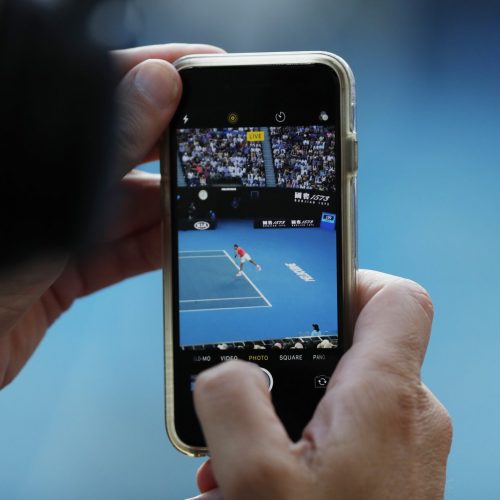PODCAST: What content creators need to learn about mutually beneficial influencer marketing
“In influencer marketing, the ROI is in delayed gratification, not instant gratification.”
That was the theme of an interesting part of the discussion between Will Pyne of Brave Bison and Matt Wilson of Ball Street, the subjects of the latest Digital Sport Insider podcast with Dan McLaren.
Having been in charge of sponsorship at TalkSPORT before founding the Ball Street network, Wilson is perfectly placed to comment on the rise of influencer marketing over the years. From embedding brand partnerships within the editorial output of the radio station to applying those learnings to fan-led media these days, his insight is valuable. And it’s all about long-term partnerships.
“Having real, all-in partnerships with certain brands in certain categories is what gets long-term results. And that’s why the brands I worked with back in 2003… have stayed with the station year in, year out, and we’ve tried to replicate that with the Ball Street network,” he said.
“At Ball Street, we own a lot of social media channels and pages, but we also represent and own some fan media pages. So we look at it almost like an airport: T5 is BA, and that’s our fan channels. Ladbrokes is our BA – so Ladbrokes own all the fan channels real estate. It’s so much better for the channels because if they were just jumping on and talking about a different brand every week, the audience starts to think ‘you’re just getting paid’, but because of the way we run the editorial about being backed for the season and we don’t even talk about odds, really.”
The reward in social media, he goes on to say, is that delayed gratification: it’s not about sign-ups right now, it’s about the fact that fans see the attachment to the brand and might be more likely to use that product in the future.
That’s the reward for the brand, but as Will Pyne then pointed out, the same is probably true for the creator, too. They may never get to a stage where they are seen to be promoting a brand because of the love of the product, but over a long period of time a content creator can be seen to have an affinity with a brand. As a result of that, the audience will see the creator as being more authentic and genuine.
Sponsorship is always a balancing act for everyone involved. At root, it is always, of course, about making money somewhere along the line. That much will always be clear. But there’s a difference between revenue and value, and sponsorships can often provide something real and meaningful as well as a vehicle for giving creators the financial means to dedicate their time and effort to making great content for their fans. But that can’t just mean taking money wherever it is offered.
For the creator, they should attempt to make sure that the brand they are sponsored by adds some value to the lives of their audience. There should at least be an obvious link, a reason to subject fans to an add or a brand logo. And for the brand, they should look good because of the partnership, not as though they’re just throwing money at a popular influencer in order to get their name out there to more people.
And the best way of doing all that, as the guys on the pod said, is through long-term partnerships that show brands and creators in mutually beneficial partnerships.
That’s not always how these things work, of course. The temptation to take whatever money comes along is always high. And as Matt Wilson points out, so is the potential for the proliferation of agencies who attempt to match brands to influencers without giving proper consideration for the partnership, or even the right advice to the creator about the benefit of a long-term tie with the brand.
This is an area where growth has happened so fast: on Twitter, Facebook and Instagram, accounts with big followings are always targeted by brands, and the rise of podcasts and fan channels just means there are more and more ways for brands to get involved. But the key will always be to create partnerships that are meaningful to the brand, the creator and, crucially, the audience, too.
About author
You might also like
The seven essentials for achieving successful sports branding
By Daniela McVicker When it comes to sports, great branding is a must. Your brand influences how people see your company or team. It helps you to forge connections with
Live Chat: A New Social Experience in Sports
Article written by John S. Kim, CEO and co-founder of global API company SendBird Social media rose to prominence throughout the world due to its potential for connection. Social channels provided the
Snack Media’s Football Content Campaign’s Review: February
By Mike Constanti This series, in partnership with Snack Media, will look at the best football campaigns from advertising to social media on a monthly basis, as Digital Sport evaluates how








